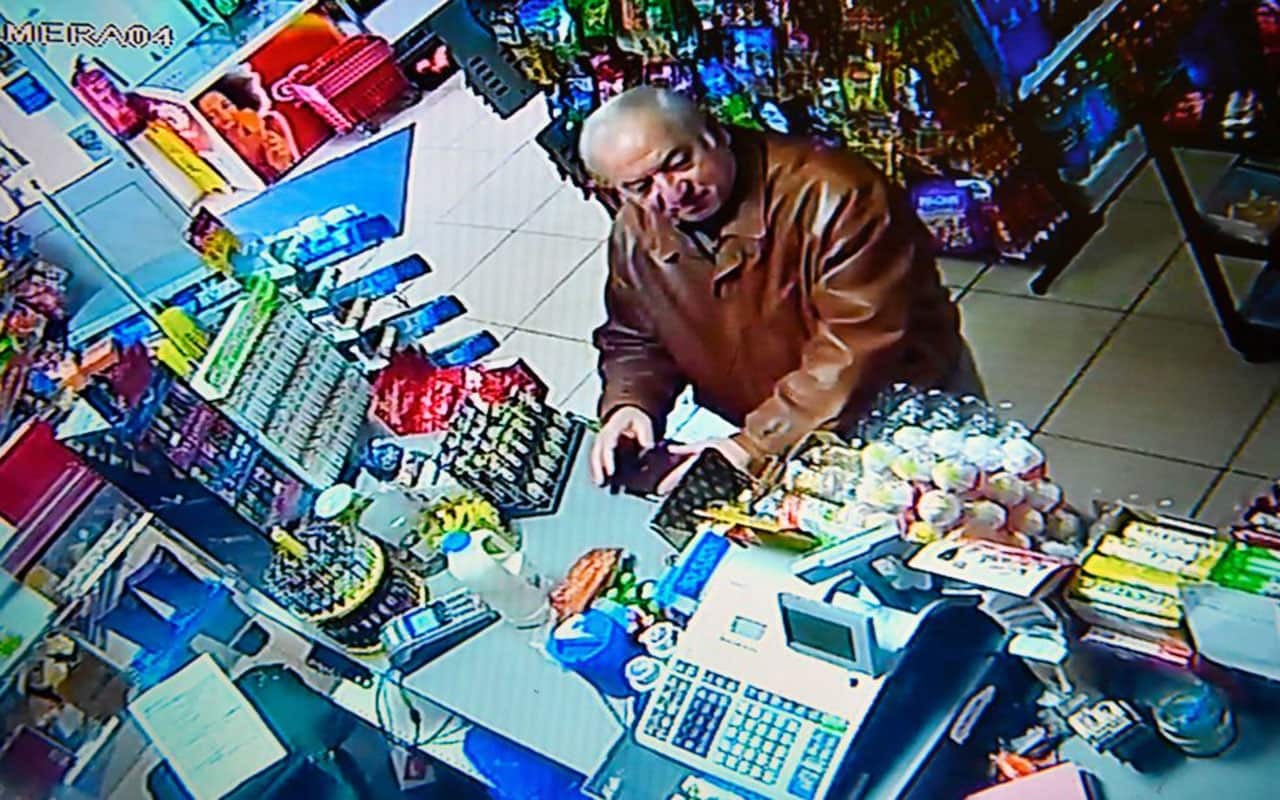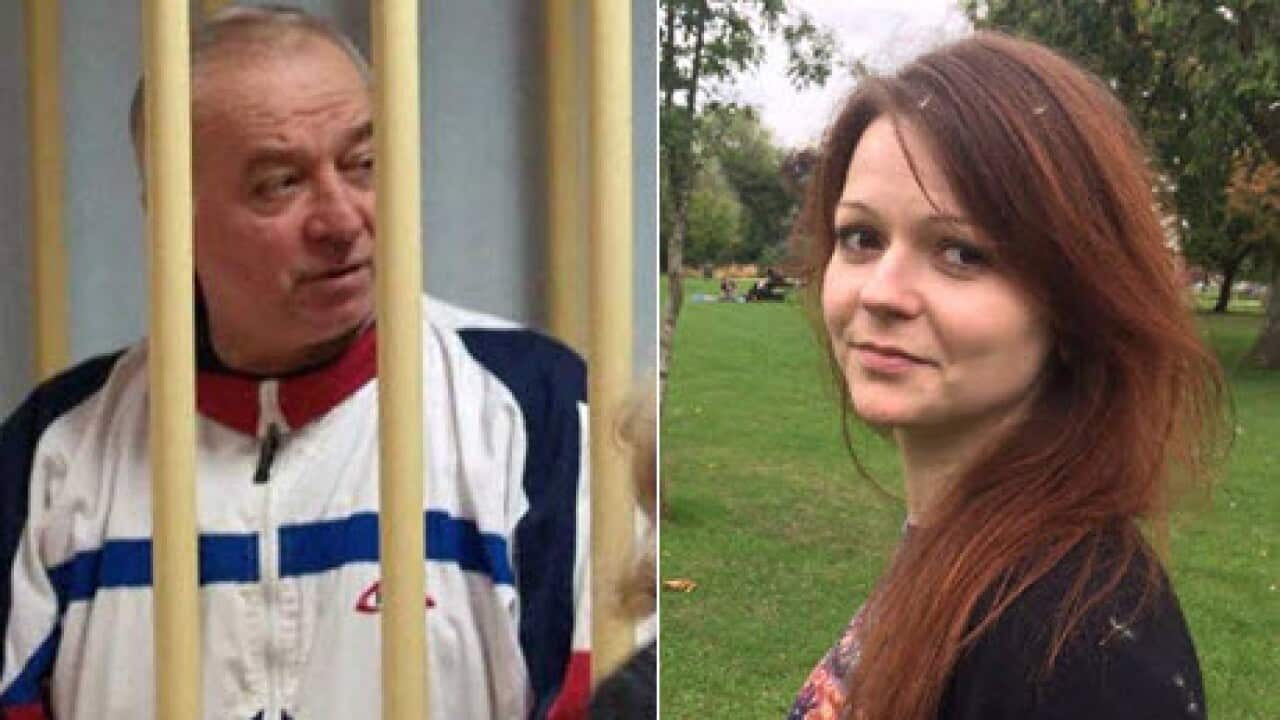The military-grade nerve toxin that poisoned former Russian agent Sergei Skripal was planted in his daughter's suitcase before she left Moscow, The Telegraph newspaper reported, citing unidentified sources.
Skripal, 66, and his daughter Yulia, 33, were found slumped unconscious on a bench outside a shopping centre in the genteel southern English city of Salisbury on March 4. They have been in a critical condition in hospital ever since.
Yulia Skripal flew to London from Russia on March 3, according to counter-terrorism police. British investigators are working on the theory that the toxin was impregnated in an item of clothing or cosmetics or in a gift that was opened in Skripal's house in Salisbury, the Telegraph said, citing the unidentified sources.
British investigators are working on the theory that the toxin was impregnated in an item of clothing or cosmetics or in a gift that was opened in Skripal's house in Salisbury, the Telegraph said, citing the unidentified sources.

Police stand guard in Salisbury where Sergei Skripal, 66, and his daughter Yulia were poisoned. Source: AAP
Britain has said the toxin, which also poisoned a British police officer who attended the scene, was Novichok, a lethal nerve agent first developed by the Soviet military.
After the first known offensive use of such a weapon on European soil since World War II, Britain has pinned the blame on Moscow and given 23 Russians who it said were spies working under diplomatic cover at the London embassy a week to leave.
Britain, the United States, Germany and France jointly called on Russia on Thursday to explain how the toxin came to be used on British soil. Russia has denied any involvement and has accused London of whipping up anti-Russian hysteria.
Russian ambassador says Britain had motive to kill Skripal
Russia's ambassador to Canberra has insisted the Kremlin had no motivation to kill the former spy in the UK and suggested Britain might be involved.
Grigory Logvinov believes a full investigation into the attempted assassination is needed before blame can be attributed.
"I'm afraid Russia would be the last country to have any motive," Mr Logvinov told the ABC on Friday.
"But the other countries, they have much stronger motives, including Great Britain."
Former double agent Sergei Skripal and his daughter are fighting for their lives in hospital after being poisoned by a military grade nerve agent in Salisbury, England.
Britain and its western allies are blaming Russia, but Mr Logvinov questioned what possible motive Moscow could have.
"This guy, he was arrested, he was sentenced, he served his term, he was pardoned and expelled from the country," Mr Loginov said. "What's the use for Russia to assassinate him in this way, just on the eve of the presidential elections, and when the world soccer championship is approaching?"
"What's the use for Russia to assassinate him in this way, just on the eve of the presidential elections, and when the world soccer championship is approaching?"

CCTV image of Sergei Skripal buying groceries at the Bargain Stop convenience store in Salisbury on February 27, 2018. Source: Getty
Earlier, Foreign Minister Julia Bishop argued Russia had "no plausible excuse" for the attempted assassination.
Ms Bishop said Russia was either behind a nerve gas attack on a former spy in the UK, or the country had lost control of its chemical weapons supply.
The foreign minister believes there are global security ramifications for the assassination attempt on Mr Skripal and his daughter Yulia on March 4.
Australia has sent people to Moscow to follow up on the UK's accusations that Russia is behind the attack.
"There seems to be no plausible excuse - either the Russian State was behind it or Russia has lost control of its chemical weapons stockpile," Ms Bishop told the ABC.
"Either way Russia must answer these accusations."
Ms Bishop said Australia would work closely with the UK in the short-term, backing Britain's decision to expel 23 Russian diplomats and cut off high-level contacts with Moscow.
Australia will continue ongoing sanctions, including targeted financial sanctions introduced after threats to the Ukraine in 2014 and trade sanctions and travel bans introduced in 2015.
"We keep our sanctions against Russia under constant review and will continue to work very closely with the United Kingdom and other like-minded partners as the UK's investigation into this horrendous act continues," Ms Bishop said.
But Australia has no plans to introduce a Magnitsky Act, like those in the UK, United States and Canada, which allow sanctions against Russians connected to human rights violations.
Longer term, Ms Bishop believes Australia can play a role in a coordinated international campaign against chemical weapons.
Share

